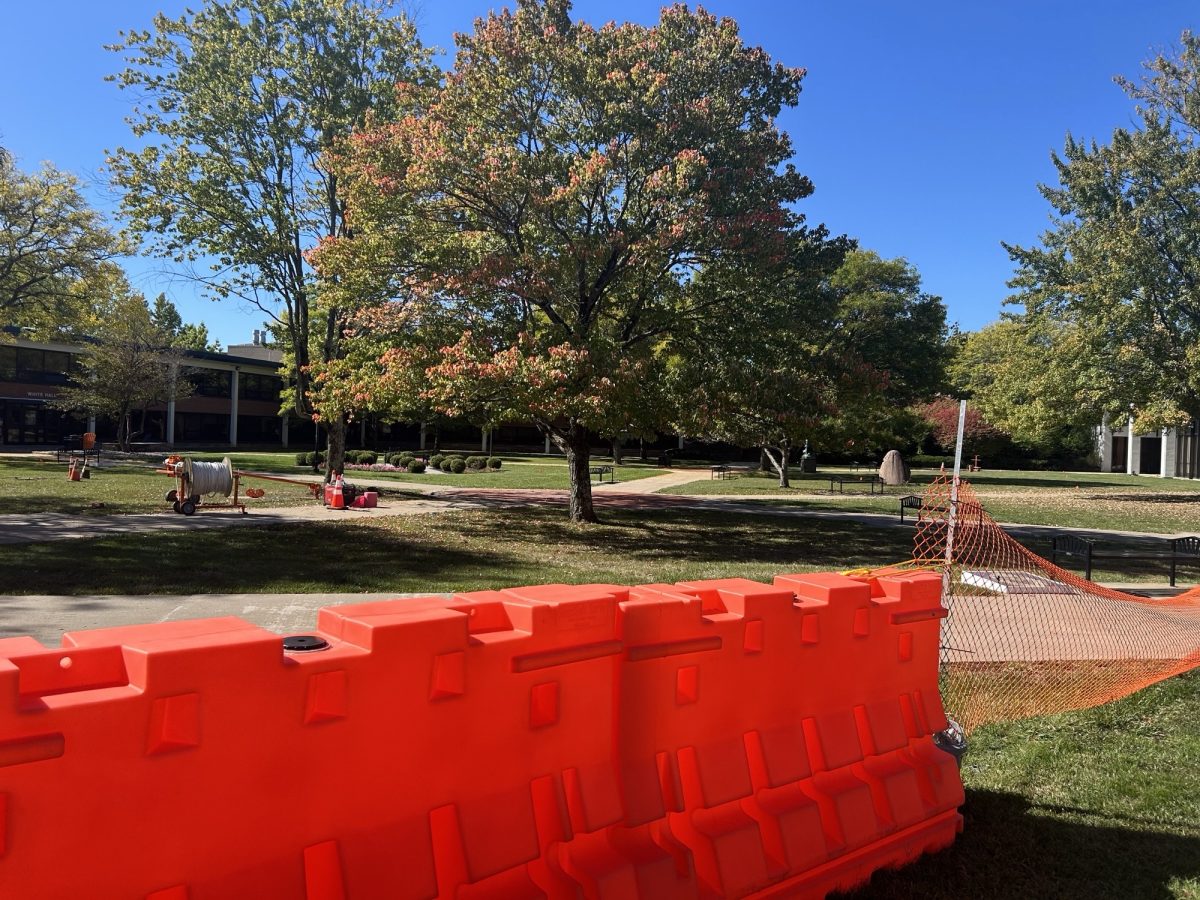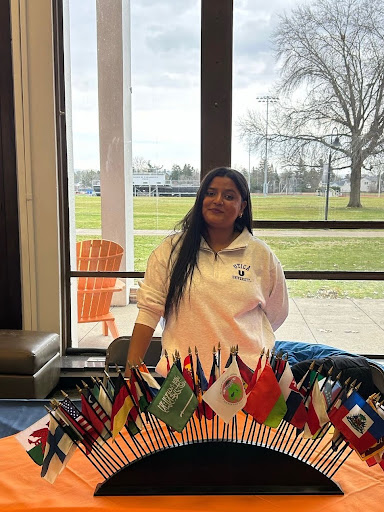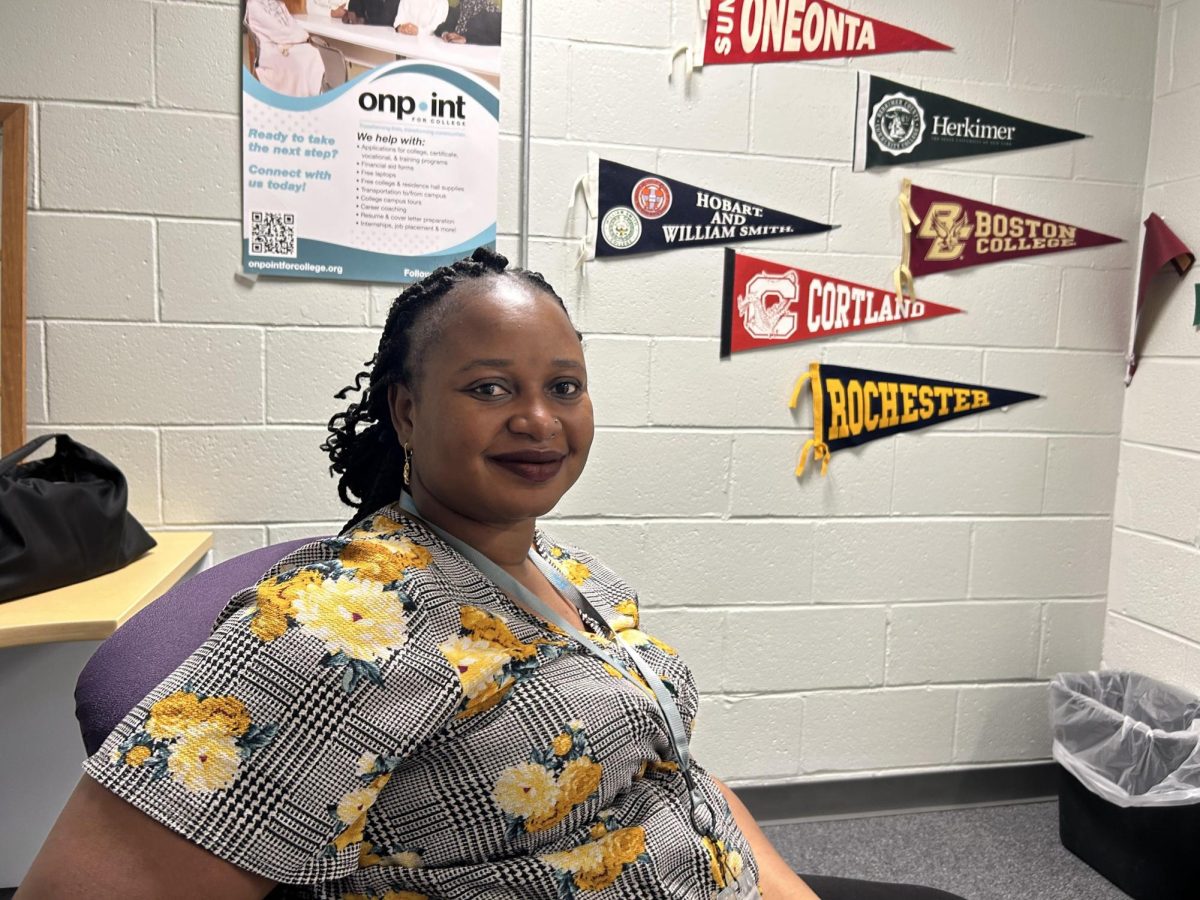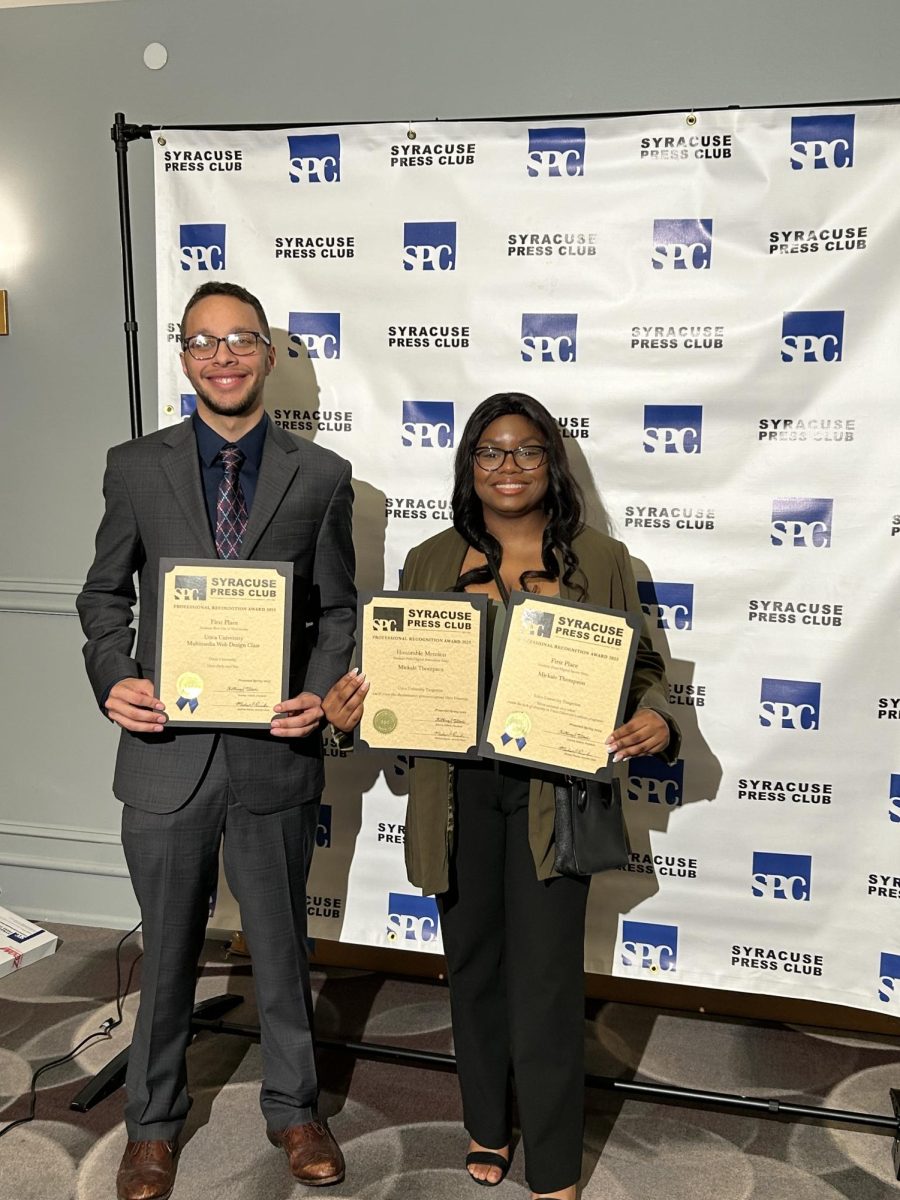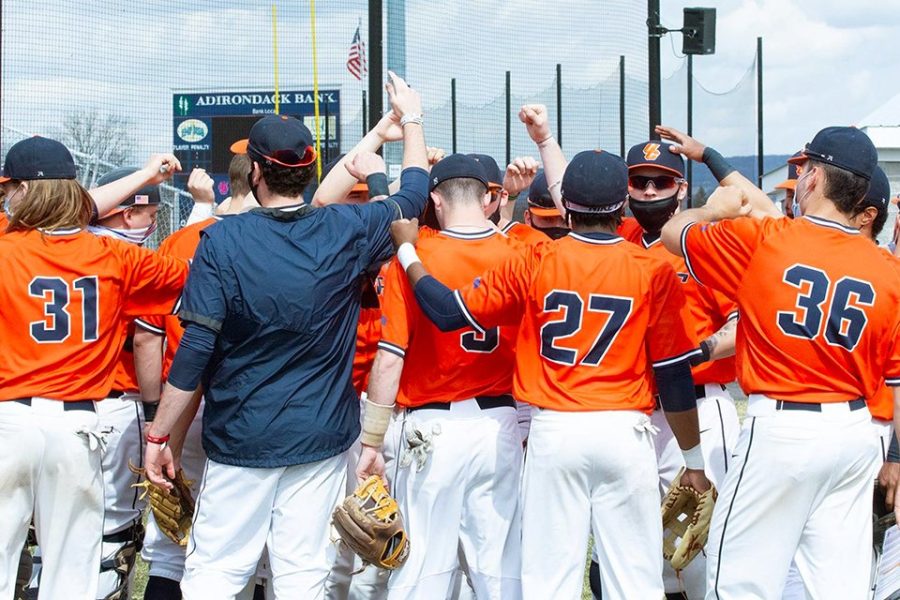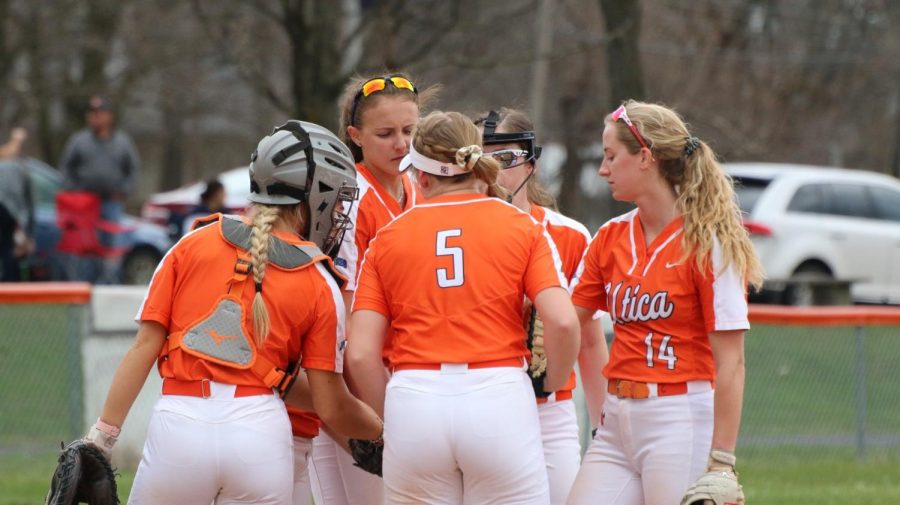Editor’s Note: The student journalist who wrote this piece asked to remain anonymous.
As the political landscape in the United States shifts under the Trump administration, international students are finding themselves navigating a mix of uncertainty, hope and concern about the future. With changes to immigration policies, student visas, and political dynamics, the effects on this group of students who play a crucial role in U.S. education and culture are felt more than ever.
International student enrollment in U.S. higher education has steadily increased over the years, from 25,464 students in 1948 to over 883,000 in 2023, according to IIE Open Doors, the nonprofit information resource on international students and scholars in the United States and American students studying abroad for academic credit. This growth has played a key part in easing financial pressures on universities, especially as domestic enrollment numbers have declined. International students now make up about 5.9% of total enrollment, contributing to the diverse academic environment and strengthening the U.S. economy.
The number of international students at Utica University has grown in recent years. The university’s Principal Designated School Official (PDSO), Elizabeth Nassar, confirms an increase in enrollment these past few years. As more students come from abroad, the university community is adjusting to the challenges and opportunities that this diverse student body brings.
Nassar said there were just 28 international students in the 2020-2021 academic year, including those in study abroad programs. However, this number grew to over 200 in the most recent academic year.
“The students bring different perspectives and help reshape the landscape of our campus,” Nassar said.
The current situation under the new U.S. administration has raised concerns among many international students nationwide. While some policies are still developing, many students are already feeling the pressure from fears over visa terminations to uncertainty about their academic and professional futures.
According to a recent article in The New York Times, the Trump administration escalated its immigration enforcement efforts by revoking nearly 300 student visas, mainly affecting international students who joined pro-Palestinian protests. Many of these students said they did not receive a clear reason for the visa cancellations, which caused fear and confusion among students and universities.
The administration’s approach has raised alarms about potential infringements on free speech and academic freedom. Several universities, including Columbia and Harvard, have expressed concerns over the lack of transparency regarding the visa revocations. Legal experts and civil rights groups are asking the government to explain its actions and follow fair processes.
Daniel Tagliarina, Associate Professor of Political Science at Utica University, said the ideological divide between the new administration and many students is concerning, especially international ones, and has led to a crisis in free speech.
He said policies, particularly on immigration, have created an environment where international students are not only at risk of facing repercussions like visa revocation and deportation for peaceful protests but are also feeling less empowered to speak out at all.
“The actions of the administration are harming the U.S.’s image globally,” Tagliarina said.
The actions not only discourage international students from considering the U.S. as a destination for higher education, but they could also have far-reaching consequences, including a potential loss of talent and innovation that international students often contribute to U.S. campuses.
Tagliarina said colleges themselves should not be viewed as extensions of federal policy. Despite the federal government’s stance, many universities remain welcoming and supportive spaces for students from all backgrounds.
He said the importance of due process, suggesting that instead of immediately punishing students, there should be a conduct hearing. This would allow students to understand the allegations against them and provide them an opportunity to respond before any actions are taken.
“I won’t tell people not to speak up, that’s their decision. But given the current situation, I understand if people think they should self-censor,” Tagliarina said.
The current political climate is creating a situation where international students might feel increasingly vulnerable, Tagliarina said. While the right to protest and speak freely is necessary, the professor suggested that students, especially international ones, need to carefully consider the impact of their actions. It is important to create a balance between free speech and being mindful of the political and legal consequences that might follow.
An international graduate student at Utica University, Bakshish Kaur, said the current situation feels a little unsettling.
“Things are definitely stricter than what we’ve seen in the past. There’s no real clarity right now, especially about how it will impact people who are already here or those planning to come.”
Kaur said she was fortunate to have completed the visa process before recent policy changes, but others are facing more challenges. Kaur also raised concerns about returning home for the summer. With graduation approaching next semester, she does not want to risk any complications that might prevent her from coming back to the U.S.
“The uncertainty surrounding travel and re-entry is overwhelming,” she said. “I’m worried about the risk of not being able to come back, especially with how uncertain the process is.”
Kaur also expressed concern about future job prospects. “Even professionals are worried right now,” she said. “They said the recession might happen, food prices are rising, and jobs are harder to find. For international students, it’s not impossible to get a job, but it’s definitely more difficult.”
Referencing posts on LinkedIn from professors and professionals, Kaur said there is probably a decline in international student numbers now, possibly due to complicated visa processes.
“That’s a big loss for communities, too. International students bring income to local businesses and schools,” she said.
Despite the challenges, Kaur encouraged others not to panic.
“Policies take time to go into effect,” she said. “A lot of fear comes from not knowing what’s really happening. We chose to be here and we shouldn’t let fear control us.”
The feeling of uncertainty is not unique. Shaiza Sajjad, a freshman at Utica University, shared similar concerns and frustrations about visa issues and the uncertainty that international students continue to face.
As a freshman, Sajjad is worried about how the current situation might affect her future. She first heard about the changes from her father and has since had to adjust her summer plans out of caution.
“My family had planned to perform umrah this summer. I will come from here and they will come from home [Pakistan] and meet in Saudi, but the current situation makes it uncertain,” Sajjad said. “I might be able to go out of the country but might not be able to come back here. The plan changed and I will stay with my uncle in the Bronx area instead.”
Sajjad said that deportations and visa revocations could lead to fewer international students in the U.S. in the future. She explained that many students may be hesitant to apply because the visa process is costly, requires a lot of preparation, and offers no guarantee of approval.
“I wanted to come here instead of studying in Pakistan because there are no practical applications during studies there,” she said. “Many people want to come here because of the education system but the student deportation of those who are here legally will definitely make people scared to come.”
A junior international student from Italy who studies at Husson University, shared similar concerns, showing that the issue extends beyond Utica University. They asked to remain anonymous due to safety concerns.
The Italian student was frustrated and confused about the government’s stance on student visas and the First Amendment rights of international students.
“I don’t understand why student visas and First Amendment rights are under attack since international students are here legally and our visas were approved for the whole length of our program of study,” they said.
One of the most striking concerns raised was about the uncertainty surrounding student visas. The Italian student said they email every morning hoping they did not get an I-20 termination email.
“It’s the most terrifying 10 minutes of my day,” they said. Not knowing if they can stay in the U.S. to pursue higher education or a professional career due to the uncertainty of the new administration makes the Italian student feel like their future is slipping out of their hands.
“The administration’s policies are already affecting international students,” they said. “It looks like about 1500 I-20s have been terminated in the last month and it’s honestly terrifying. There has been an increase in denials of student visas even if the students were already accepted in programs for the next academic year.”
They are concerned with the treatment of protesters under the current administration. Specifically, they referenced the government’s actions towards pro-Palestine demonstrations, highlighting the right to protest against injustices, such as the bombing of children.
“I think people have the right to protest against the bombing and murder of children and should not be detained or deported because of it,” the Italian student said.
Utica University’s Dean of Students, Richard Racioppa, said the university is doing its best to support international students amid growing concerns over changing immigration policies. While the main resources often come from the international office, his team plays a role in making sure students feel supported, especially during times of uncertainty.
“I think we try to convey a sense of calm for the students, but knowing that there’s not a whole lot we can do to help direct them, because we’re all receiving information at the same time,” he said.
He acknowledged that one of the biggest challenges is the lack of clear and consistent communication around policy changes.
“Lately, things are just declared, it seems, and decisive action is being taken,” he said. “And that’s scary for students, scary for everybody.”
Still, he believes the university’s smaller size helps students feel more connected and supported.
“We are a small institution, you know, as opposed to an Ohio State or Michigan State or Notre Dame with 10,000 of students, there’s only a couple thousand students here,” he said. “ I think our international community is a good sized group. I think they feel comfortable asking for help. I think they have acclimated to the campus and to each other fairly quickly, right? And they know who to ask questions or where to go for these types of things.”







































































































































